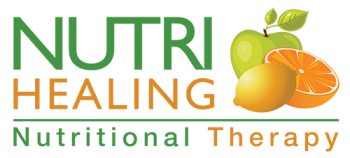Mouth ulcers - June/July 2012
Mouth Ulcers - Canker sores (Apthous Ulcers)
Have you ever thought how important your mouth is? This is the one area that is constantly exposed to the external environment. We constantly use our tongue, teeth, lips and cheeks to speak, eat and breath. Sometimes sores may occur on many of the soft tissues of the mouth causing pain and irritation. When sores do develop in the mouth there can be several different causes.
What causes Canker sores (Ulcers)?
Below are a few possible causes:
Burns
Consuming very hot food, which can burn the tissues of your mouth and tongue resulting in damage and causing blisters that create painful areas in the mouth.
Teeth
Chipped or broken teeth can rub, irritate or cut the tissues of the mouth and tongue causing sores to form
Trauma
- Orthodontic braces can also catch and cut the tissues of your mouth creating painful
- Sores.
- Aggressive tooth-brushing
- Biting While rushing and chewing your food too quickly or maybe biting the inside of your cheeks or lips when nervous, your teeth can inadvertently catch the soft tissue
- In your mouth or tongue, causing a painful break.
- Irritants
- Some people maybe sensitive to: toothpastes, mouthwashes, and certain foods - citrus or sour.
Mouth and tongue soreness can also be rarely associated with more severe problems. For example, mouth sores can be caused by viruses, autoimmune disorders such as lupus, immune suppression from HIV/AIDS, or malignancies, such as oral cancers.
Don't confuse canker sores with cold sores
Canker sores (Apthous Ulcer) are not viral infections but often erupt when the immune system is weakened: for example when someone is under severe stress, an illness or lack of sleep, Certain acid foods such as tomatoes or nutritional deficiencies.
It is very easy to confuse Canker Sores with Cold Sores,
so what is the difference:
Canker sore (Apthous ulcer)
- A canker sore is not contagious and not caused by a virus.
- You can have one or several sores at any one time
- It is a painful and open sore, erupting on the inside lining of the mouth, tongue, cheeks, lips and throat.
- A canker looks like a small, round or oval lesion that has a white or yellowish center surrounded by a red inflamed area. Resembles a crater, rather than raised.
- It is generally unclear what causes canker sores but has been linked to viral infections, injury to mouth during dental procedures, broken or damaged teeth, orthodontic braces, aggressive tooth brushing, chewing or biting of the soft tissues. When an open sore becomes infected after its onset, it is then considered a canker sore
- They occur in women more often than men and can occur at any age, but usually first appear between the ages of 10 and 40.
- In most cases, canker sores will heal by themselves, but may need to be treated with an antibiotic or an anti-viral medicine, depending on the type of infection that sets in.
Cold Sores
- Cold sores are contagious (herpes virus) and usually appear on the outside of the mouth, appearing as small red blisters on the lips, chin, cheeks and under the nose around the nostrils.
- Also known as the fever blister and most recurrent cold sore outbreaks are caused by the Type1 herpes simplex virus, not to be confused by the Type 2 strain that is normally linked to genital herpes. Once a person has been exposed to this virus it remains dormant in the nerve cells of the skin and reoccurs as an active infection. Once the virus has passed, once again it retreats back into the nerve cell and can erupt over and over again.
- If there is an open sore be careful not to touch it, as there is a chance of then spreading the virus to other parts of the face
- An outbreak is normally triggered by stress, fever or exposure to the sun or wind.
- Anti-viral medication generally helps to reduce their frequency and duration of the lesion.
How can we help to prevent Canker sores?
Diet & Lifestyle
1. Research has shown that people with low levels of certain vitamins & minerals maybe susceptible:
- Vitamins: B1, B2, B6, B12, folic acid, Vitamin C
- Other nutrients: zinc, folic acid, iron, selenium and calcium
Solution
- Increase all fresh green leafy vegetables, peppers; fruits especially berries (except ones listed below). Nuts, seeds.
- Supplement diet with B Complex, Vitamin C and multi-mineral.
2. One of the most common reasons is stress; this weakens the immune system and the body becomes more susceptible to infections. Find ways to relax and deal with what is creating your anxiety and stress.
3. Some foods may trigger the onset of canker sores, so keep a diary when you have an attack!
Some foods you maybe sensitive to:
- Cereal grains: buckwheat, wheat, oats, rye, barley, the gluten protein found in grains
- Fruits and vegetables: lemons, oranges, pineapples, apples, tomatoes, strawberries
- Dairy: milk, cheeses
- Other foods: nuts (walnuts), chocolate, shellfish, soy, vinegar
- Additives: preservatives, colourings or flavourings
- Other substances: toothpastes (sodium lauryl sufate), mints, gums, dental materials, metals, medications
Some foods to avoid when you have the sores:
• Citrus fruits
• Tomatoes
• Processed foods
• Sugar, sweets, chewing gum
• Spicy foods
• Coffee
• Alcohol
